Business
Money Card
No need for a subliminal hook for future customers in this one--it's all explicit! Buy American Express Traveler's Cheques.The entry at Board Game Geek.
Posted By: Paul - Tue Jun 04, 2024 -
Comments (0)
Category: Business, Advertising, Games, Money, 1970s, Europe
Working on Sunday
The UK's Shops Act made it illegal to operate a shop on Sunday... unless one was Jewish (since the Jewish observed the sabbath on Saturday). So business owner Mike Robertson figured that to open his stores on Sunday he simply had to make his staff convert to Judaism.The Shops Act had other oddities. According to the London Telegraph, a shop could stay open if it was "in an officially designated 'holiday resort area'" or if it restricted sales to "certain kinds of perishable goods, like fruit, flowers and vegetables; medical and surgical appliances, newspapers, cigarettes and refreshments."
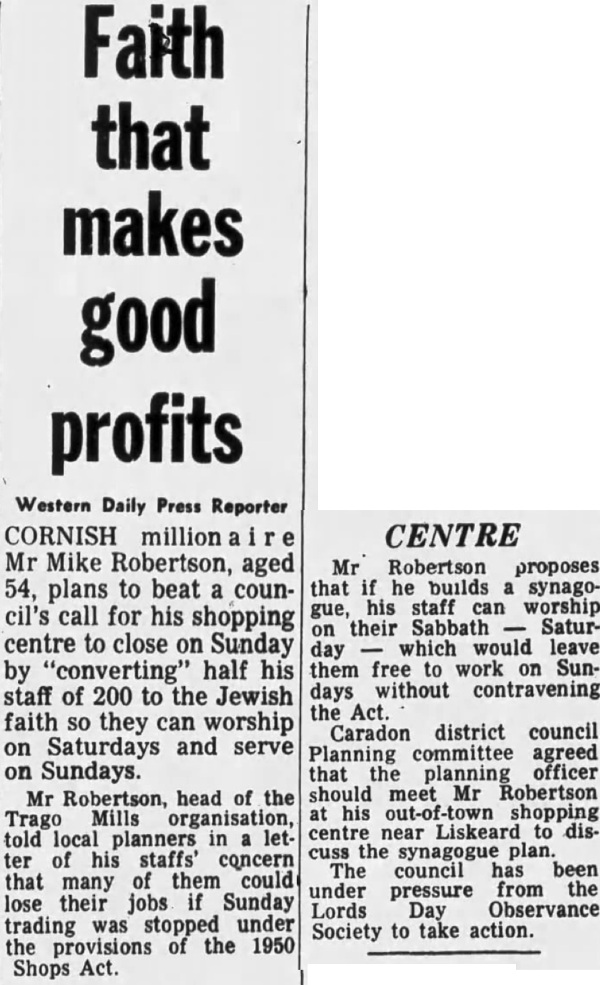
Bristol Western Daily Press - Mar 8, 1977
Posted By: Alex - Fri Mar 22, 2024 -
Comments (2)
Category: Business, Law, Religion, 1970s
Dog Collar with Decorative Tie
When you want to bring your dog to the office, he or she must be properly dressed in a business-like manner.Patent here.
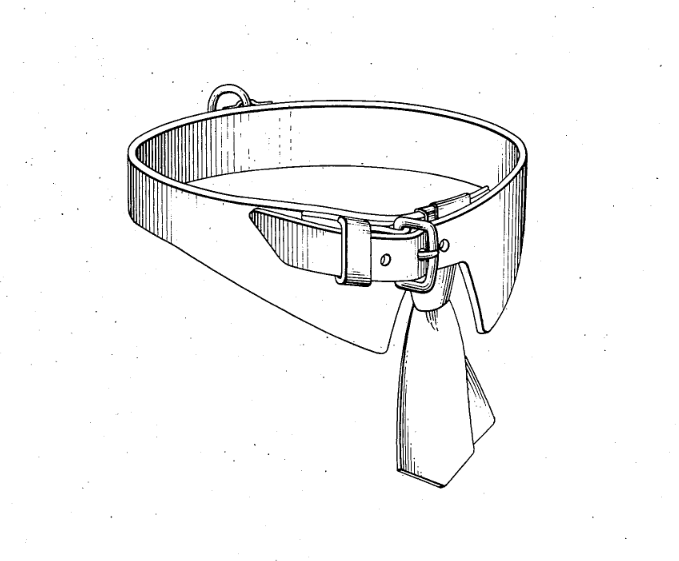
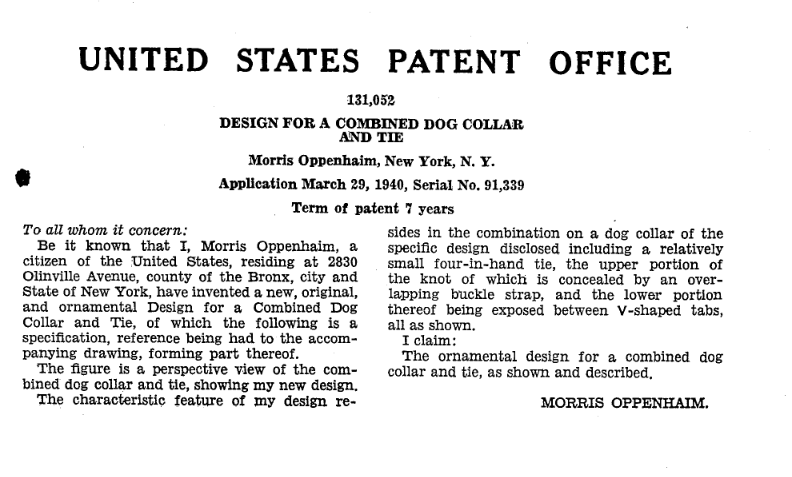
Posted By: Paul - Mon Nov 27, 2023 -
Comments (1)
Category: Business, Fashion, Patents, Dogs, 1940s
Follies of the Madmen #559
That endless red-carpet SFX is pretty impressive for the 1960s. Plus, an eight-track player!
Posted By: Paul - Thu Mar 16, 2023 -
Comments (2)
Category: Business, Advertising, Special Effects, 1960s, Cars
Rhapsody in Big Blue
Darryl Gammill came up with a way to convert stock-price movements into music. The result was the release in 1985 of "Rhapsody in Big Blue," which was a musical rendition of IBM's stock activity between April 1984 to April 1985.I haven't been able to find any samples of the album online. I can't even find any used copies of it for sale. This was evidently an extremely obscure record release.
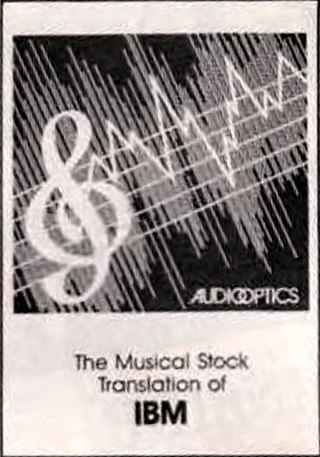
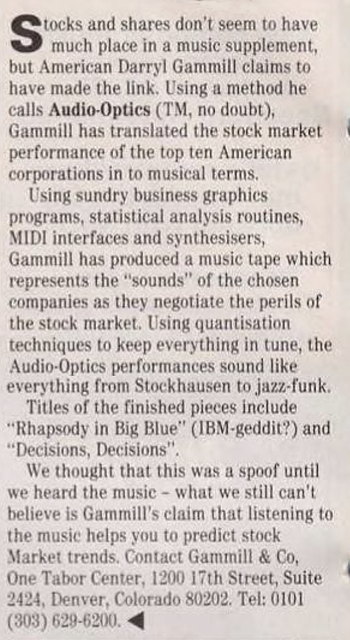
Popular Computing Weekly - April 3-9, 1987
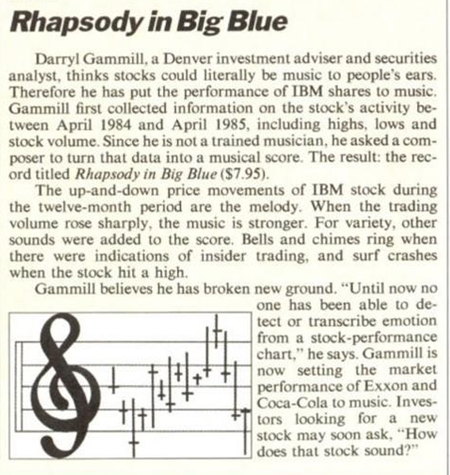
Time - Sep 16, 1985
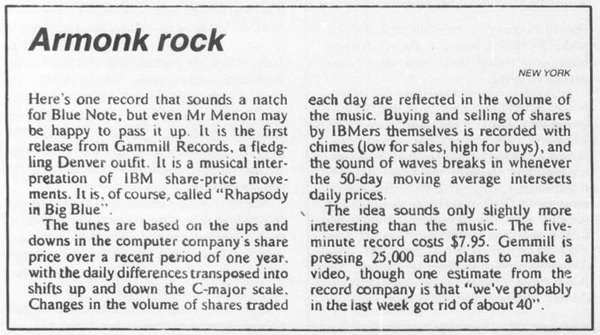
The Economist - Aug 31, 1985
Posted By: Alex - Mon Mar 06, 2023 -
Comments (2)
Category: Business, Music, 1980s
Rent-a-Drunk
For only $3 a night, Colin White would rent out one of the drunks from his pub to liven up a party.So his employees could legitimately claim to be professional drunks.
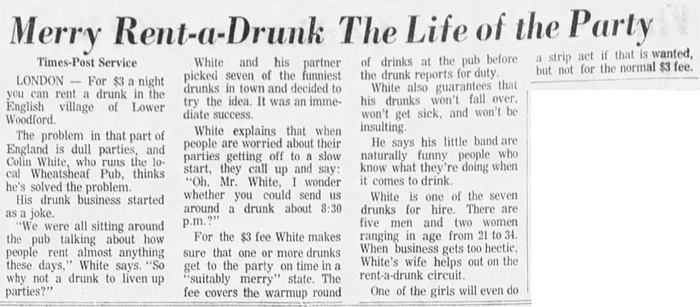
Asbury Park Press - Nov 26, 1971
Posted By: Alex - Wed Jan 11, 2023 -
Comments (3)
Category: Business, Inebriation and Intoxicants, Jobs and Occupations, 1970s
Follies of the Madmen #551
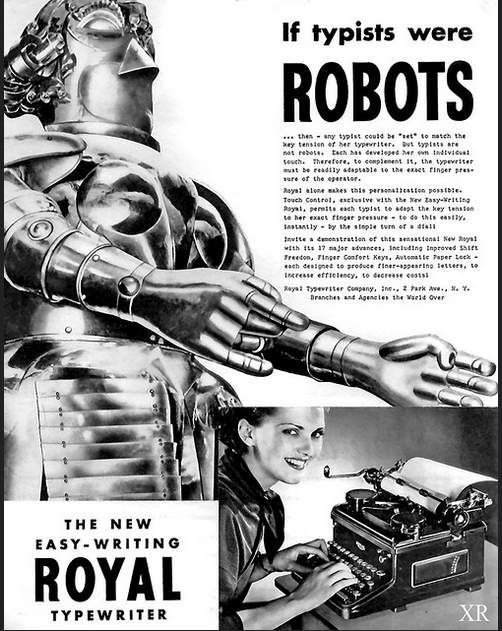
Posted By: Paul - Thu Dec 29, 2022 -
Comments (4)
Category: Business, Advertising, Robots, Women, Twentieth Century
Hair Rental—You know it makes sense
These hair rental ads ran for about five years in British papers. So I assume the company must have done decent business.I've heard of wig rentals, but for some reason the idea of toupee rentals seems weirder.

Sunday London Mirror - Mar 11, 1973
Posted By: Alex - Tue Dec 06, 2022 -
Comments (2)
Category: Business, Headgear, 1970s, Hair and Hairstyling
SHT and SCAT
In his 1983 book Big Business Blunders: Mistakes in Multinational Marketing, David Ricks tells the following story:I've been able to find ads for SHT, such as the one below, but none exactly like the one that Ricks describes. Which doesn't mean the ad doesn't exist. Just that it isn't in any journals archived online.
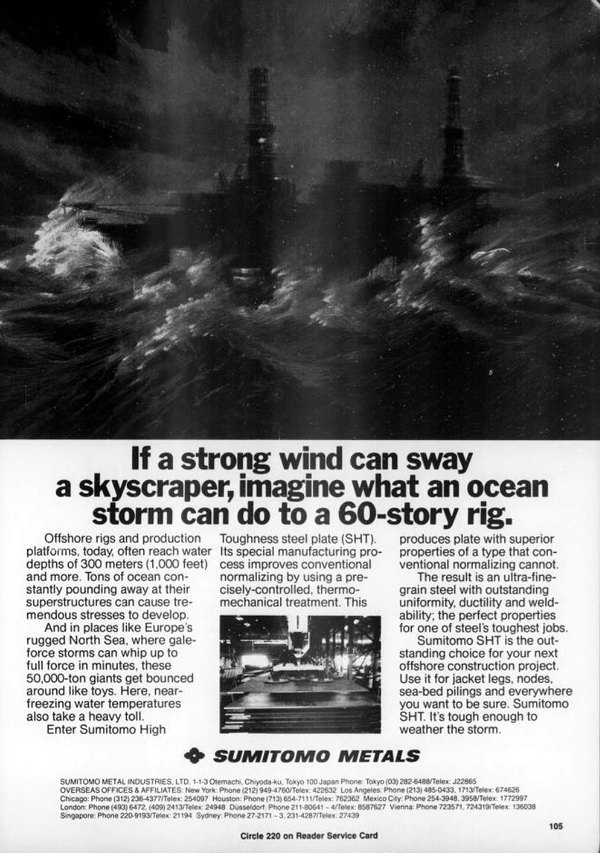
However, among the ads for SHT that I was able to find, I found one that actually improves (and possibly complicates) Ricks's story. Because it turns out that Sumitomo had another product, Sumitomo Calcium Treatment, that it abbreviated as SCAT.
Once I could accept as an honest mistake, but coming up with scatalogical abbreviations twice seems intentional. I'm guessing either someone at Sumitomo thought it was funny, or someone at the Japanese agency was having a joke at their expense.
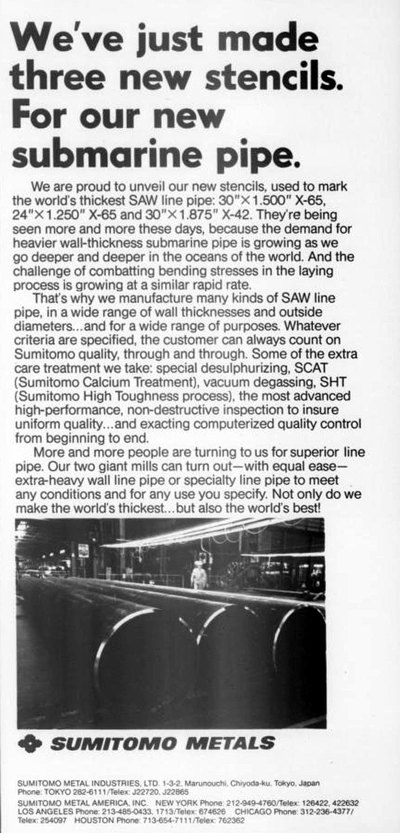
Posted By: Alex - Sun Nov 27, 2022 -
Comments (1)
Category: Business, Products, Odd Names, Excrement, 1980s
Harley-Davidson Perfume
Classic business failure: "Hot Road," an eau de toilette released by Harley-Davidson in the mid-1990s and quietly discontinued a year or two later. It wasn't exactly an "on brand" product.More info: Milwaukee Magazine
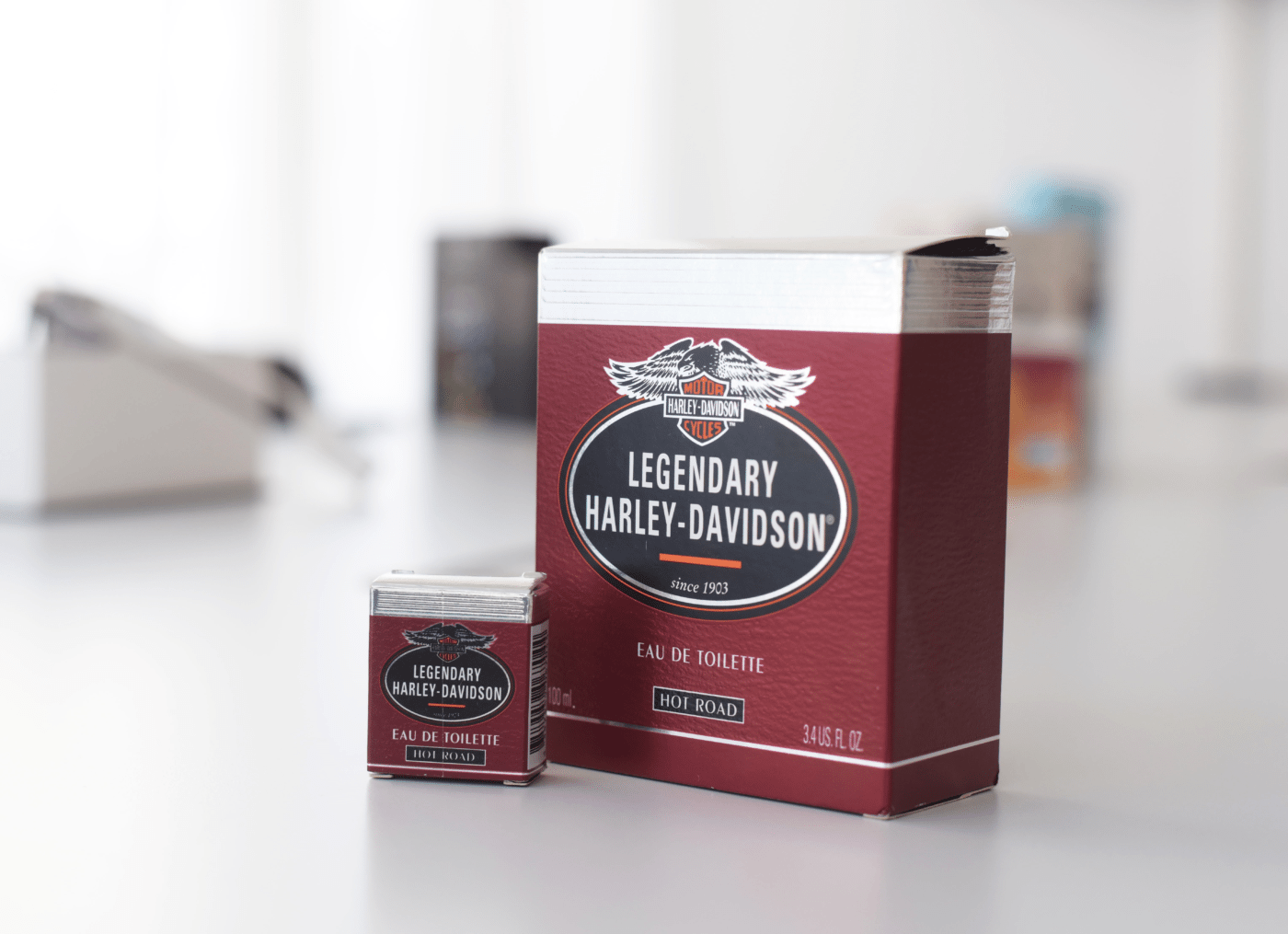
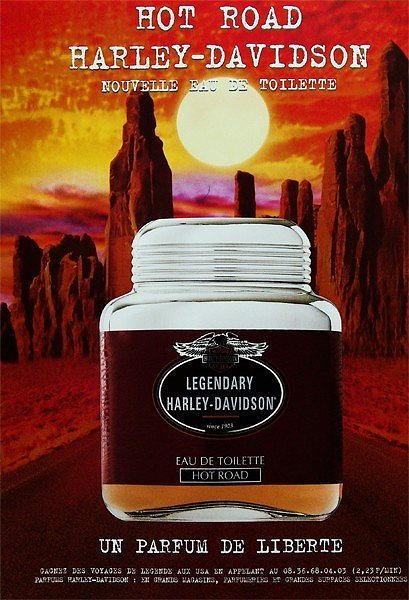
image source: parfumo.net
Posted By: Alex - Sun Sep 18, 2022 -
Comments (0)
Category: Business, Products, Success & Failure, 1990s, Perfume and Cologne and Other Scents

| Who We Are |
|---|
| Alex Boese Alex is the creator and curator of the Museum of Hoaxes. He's also the author of various weird, non-fiction, science-themed books such as Elephants on Acid and Psychedelic Apes. Paul Di Filippo Paul has been paid to put weird ideas into fictional form for over thirty years, in his career as a noted science fiction writer. He has recently begun blogging on many curious topics with three fellow writers at The Inferior 4+1. Contact Us |




